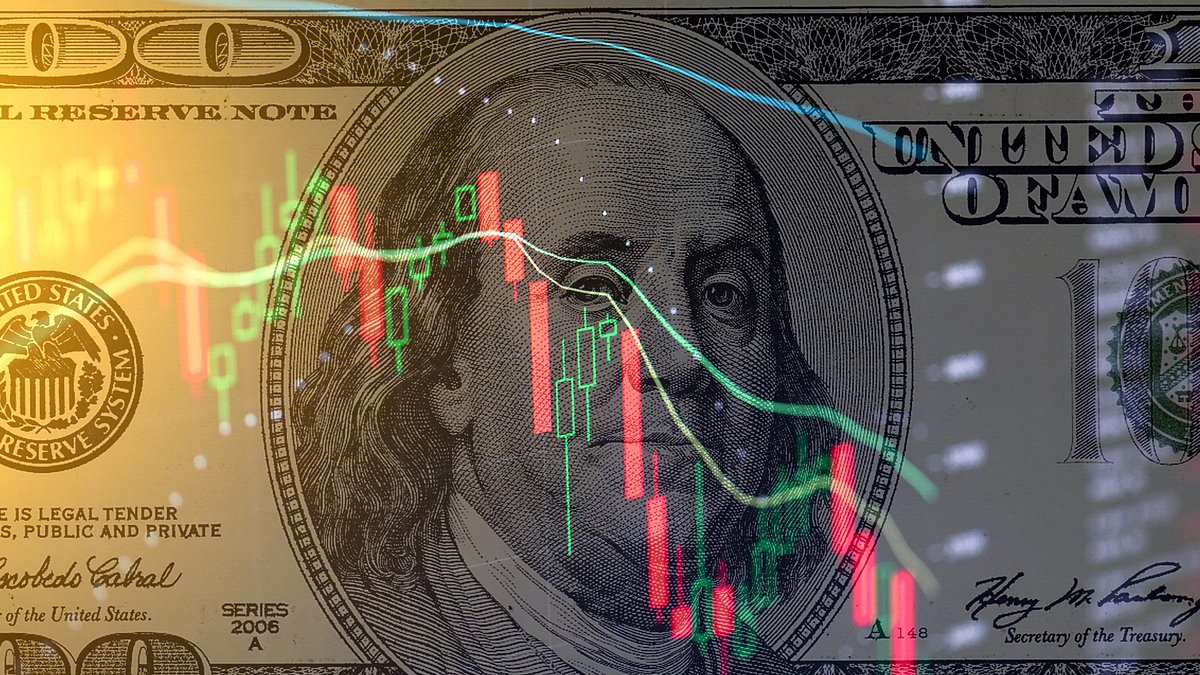America’s ‘addiction to government debt’ is its fatal flaw – and could lead to a stock market crash, an expert has warned.
Ruchir Sharma, who is an author and fund manager, said attempts to rein in the debt – now at a record $36 billion – will eventually weaken economic growth.
Sharma, who is chairman of Rockefeller International and worked at Morgan Stanley for 25 years, made the comments in a column for the Financial Times.
He had previously said that the US financial market has grown into ‘the mother of all bubbles’, which is due to pop soon.
The stock market has soared to record highs in the last several weeks, bolstered, in part, by Donald Trump’s victory in the presidential election.
Despite hitting a more rocky patch last week, many on Wall Street predict US stocks will continue to outperform the rest of the world in 2025.
‘But US earnings growth would not look so exceptional if not for the supernormal profits of its big tech firms, and massive government spending,’ Sharma said.
Growth and profits are getting an ‘artificial lift’ from the ‘heaviest deficit spending ever recorded at this stage of an economic cycle,’ he added.

Sharma said that the US financial market has grown into ‘the mother of all bubbles’, which is due to pop soon
US federal debt has soared past $36 trillion – a record high.
Interest expenses for the debt are now $1 trillion a year, and are among the biggest budget items – even exceeding defense spending.
Despite this, US households and companies are continuing to spend and fuel the economy.
GDP growth for the third quarter of this year was revised up to 3.1 percent from an earlier reading of 2.8 percent, according to the outlet, due in part to more consumer spending.
‘But every hero has a fatal flaw,’ wrote Sharma, the author of ‘What Went Wrong with Capitalism.’
‘America’s is its sharply increasing addiction to government debt.’
According to his calculations, almost $2 of new government debt is required to generate an additional $1 of GDP growth – which is up 50 percent from five years ago.
Any other country with similar dynamics would be seeing capital leaving the country, but the US can still boast the top economy in the world and the reserve currency, he said.

Ruchir Sharma, who is an author and fund manager, said attempts to rein in US debt will eventually weaken economic growth

Growth and profits are getting an ‘artificial lift’ from the ‘heaviest deficit spending ever recorded at this stage of an economic cycle,’ said Sharma
Read More
BREAKING NEWS
Markets tank as Fed slashes rate despite inflation fears: Longest losing streak since 1974

According to Sharma, one thing that could bring an end to the boom is if markets get fed up.
He predicted that in 2025 investors will likely demand higher interest rates on all the fresh debt being issued or some sign of fiscal discipline, Fortune reported.
That will then lead to efforts to reduce the heavy dependence on government spending, which will in turn hurt growth and profits.
‘In the late stages of a bubble, prices typically go parabolic, and over the past six months US stock prices have outgained others by the widest margin for any comparable period in at least a quarter century,’ he wrote.
‘When flying in such thin air, it doesn’t take much to stall the engines. All the classic signs of extreme prices, valuations and sentiment suggest the end is near.
‘It’s time to bet against “American exceptionalism.”‘
Despite hitting record highs following Trump’s win in the presidential election in November, the stock market has hit a more bumpy patch in recent weeks.
Last week, stocks were sent tumbling after the Federal Reserve signaled it would slow the pace of interest rate cuts next year.
The Fed said the rate of inflation, which edged up to 2.7 percent from a year earlier in November, remains ‘somewhat elevated.’
The caution from the central bank saw the S&P 500 fall almost 3 percent on December 18.
The Dow also fell more than 2.6 percent, which marked its eleventh straight trading session in the red and its longest losing streak since 1974.
